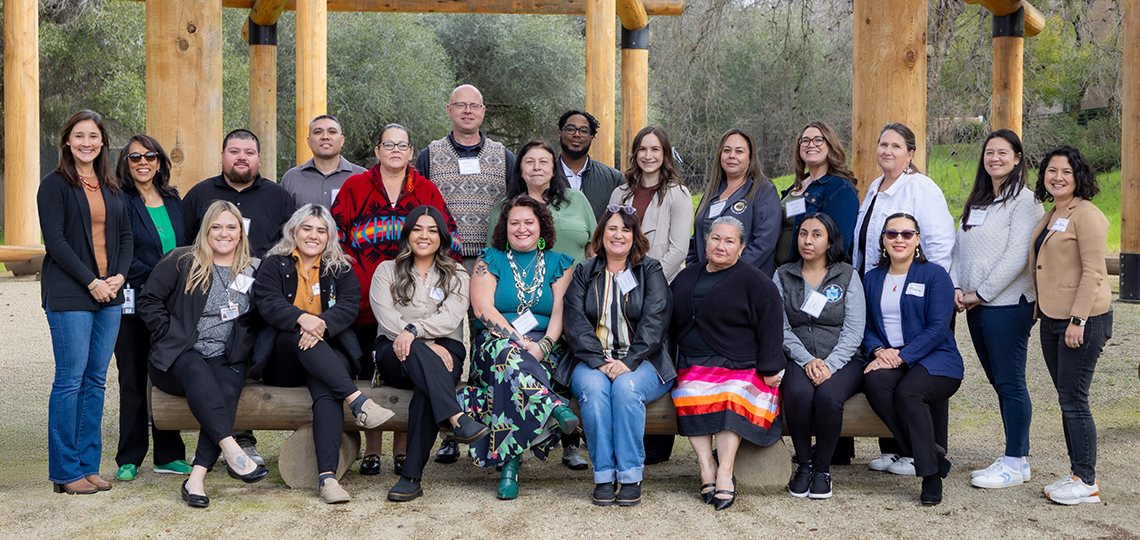The first-of-its-kind event was held at the California Rural Indian Health Board (CRIHB) headquarters in Roseville, in coordination with the California Tribal Epidemiology Center.
Marissa Bashore, health education supervisor in the cancer center’s Office of Community Outreach and Engagement (OCOE) organized the event and conducted most of the training.
Other UC Davis presenters included Nicole Halmai, a member of Navajo Nation and a postdoctoral researcher in the Luis Carvajal Carmona Laboratory at the UC Davis Genome Center. Halmai focuses on improving the cancer health of Native Americans through tribal research partnerships. Mayra Sandoval, health educator in the OCOE, also helped with the training.
Bashore worked closely with Diana Zamora of CRIHB and Celena Donahue, a tribal health consultant for the Pueblo Indian, Hupa, Yurok, and Karuk tribes, in developing the academy topics and content.
The interactive training equipped participants with vital information and practical strategies for improving cancer outcomes in Native communities. In addition to receiving training, attendees earned certificates recognizing their participation and commitment to cancer prevention.
“Native communities have the highest cancer incidence and mortality rates of any major U.S. population group,” Bashore said. “These disparities are largely driven by a higher prevalence of risk factors and socioeconomic barriers to cancer screening and vaccinations.”
Bashore added that the goal of the Community Cancer Prevention Academy is to bridge educational gaps and reduce health inequities that lead to unequal care in these communities.
“It is crucial that Native communities throughout California have the knowledge and data to effectively address cancer health needs among their citizens and community members,” Halmai said. “The academy is part of a larger effort to offer resources to tribal health organizations, which includes research partnerships to develop community-tailored interventions to improve Native cancer health.”
Halmai emphasized that the Community Cancer Prevention Academy facilitated two-way communication. In addition to presenting information to Native community members, cancer center personnel encouraged participants to identify their priorities and describe their experiences related to cancer health. “
This helps us to align our efforts with issues that the Native communities we serve believe are important,” Halmai said.
The OCOE will coordinate reconvening this inaugural group to provide ongoing education and training.





